Acrylic nails are a common choice for people who want strong, polished-looking nails, but they can sometimes lead to skin irritation. Some individuals may develop contact dermatitis, a type of skin reaction that can cause redness, itching, or swelling near the nails.
This reaction is often caused by certain chemicals in acrylic nail products. At Penn Medicine Becker ENT & Allergy, our team understands how these reactions start and how to manage them safely. We provide reliable information and care for those dealing with skin allergies related to nail treatments.
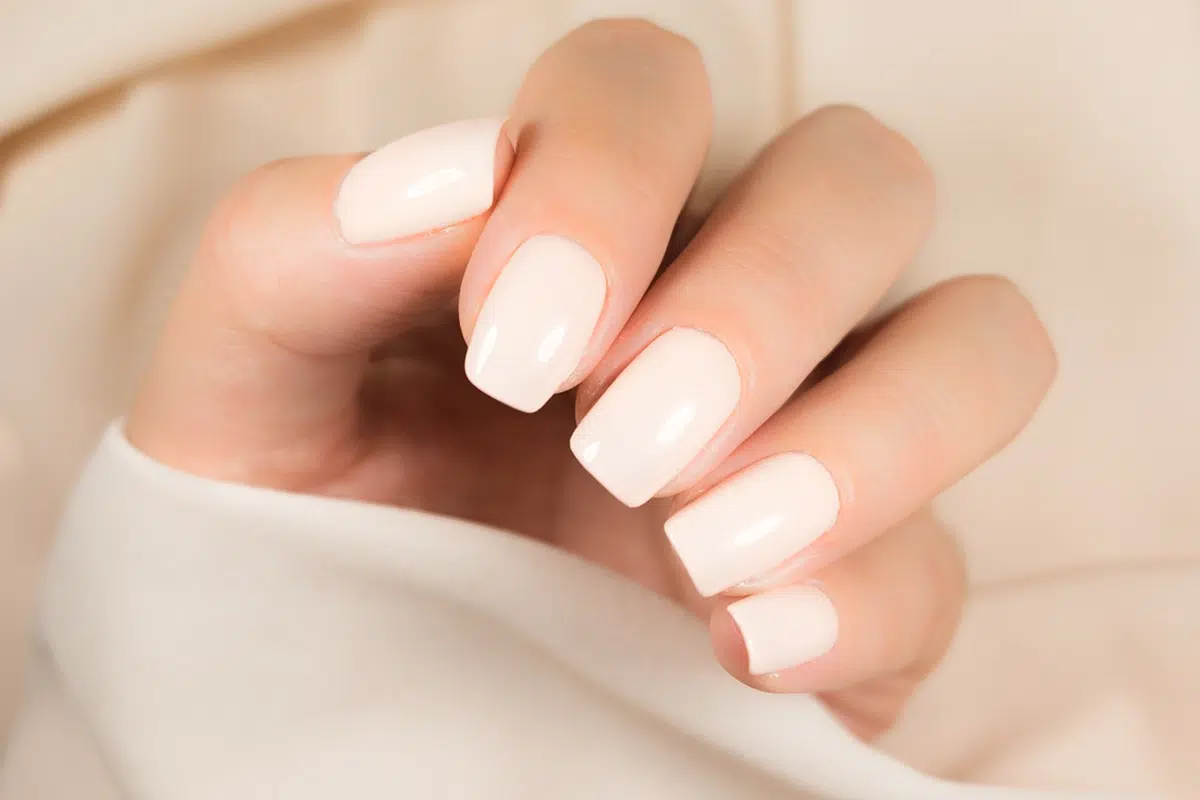
Can Acrylic Nails cause Skin Allergies?
- Safer options exist, like hypoallergenic products, gel nails, or dip powders for sensitive skin.
- Acrylic nails can cause allergic reactions like redness, itching, and swelling due to harsh chemicals like acrylates.
- Contact dermatitis is a common risk when these chemicals touch the skin, especially with repeated use.
- Early signs matter — the sooner you notice symptoms, the easier they are to treat.
- Patch testing by a dermatologist can help find the exact ingredient causing the reaction.
What’s the Link Between Acrylic Nails and Skin Allergies?
Getting acrylic nails can sometimes lead to red, itchy, or irritated skin around your fingers. This reaction is triggered by certain ingredients in nail products.
Acrylic nail products often contain chemicals that may cause allergic reactions, especially acrylates. These are found in the liquid and powder mix used to shape and harden acrylic nails. When these chemicals touch the skin—during application or removal—they can sometimes lead to irritation or allergic responses, especially after repeated use.
Studies have found that a large number of people with allergic contact dermatitis from nail cosmetics react to acrylates like 2-hydroxyethyl methacrylate (HEMA), a common ingredient in these products.
Are You Allergic to Acrylic Nails?
Common Signs You Might Be Allergic to Acrylic Nails:
Why Paying Attention Early Matters
The sooner you notice these symptoms, the better. Reactions can get worse if the exposure continues. If you’re getting your nails done regularly, keep an eye on how your skin responds.
And if you’re a nail technician, it’s helpful to watch for these signs in your clients—especially if they come in often for acrylic treatments. Catching the problem early can prevent more serious irritation later.
How to Prevent Allergic Reactions from Nail Products
Prevention is key when dealing with allergies in nail clients. Here are some practical tips:
Choosing Safer Nail Products for Sensitive Skin
- Read Labels Carefully: Opt for products with fewer chemical ingredients, reducing the risk of allergies.
- Consult a Professional: Seek advice from experienced nail professionals regarding the safest products.
Nail Care Tips to Avoid Allergies
- Use of Gloves: Nail techs should wear industrial-grade gloves, like nitrile gloves, to minimize skin contact with allergens.
- Proper Ventilation: Ensure that the nail bar or salon is well-ventilated to reduce dust exposure from filing and buffing.
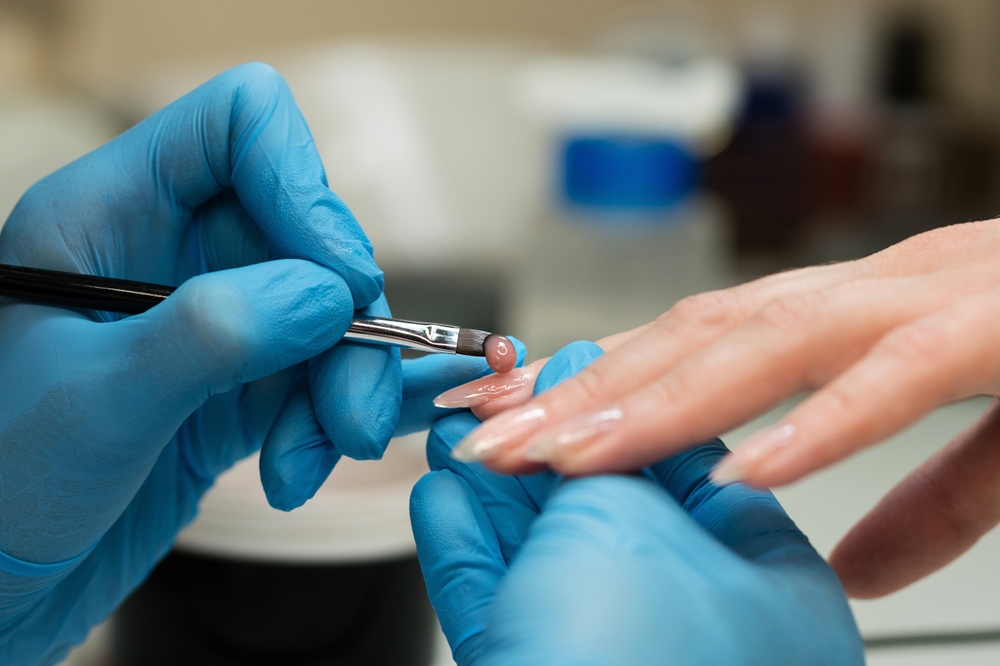
Protect Your Skin With Help From Penn Medicine Becker ENT & Allergy
Join our satisfied clients who’ve experienced safe, effective treatments.
A Dermatologist Can Help Diagnose Acrylic Nail Allergy
Diagnosing an allergy to nail products is done in a step-by-step manner, usually through patch testing performed by a dermatologist who is certified by a board.
Patch tests are special allergy tests that help identify specific allergens causing reactions. A dermatologist applies various common skin allergens on the skin and observes for any allergic reaction symptoms.
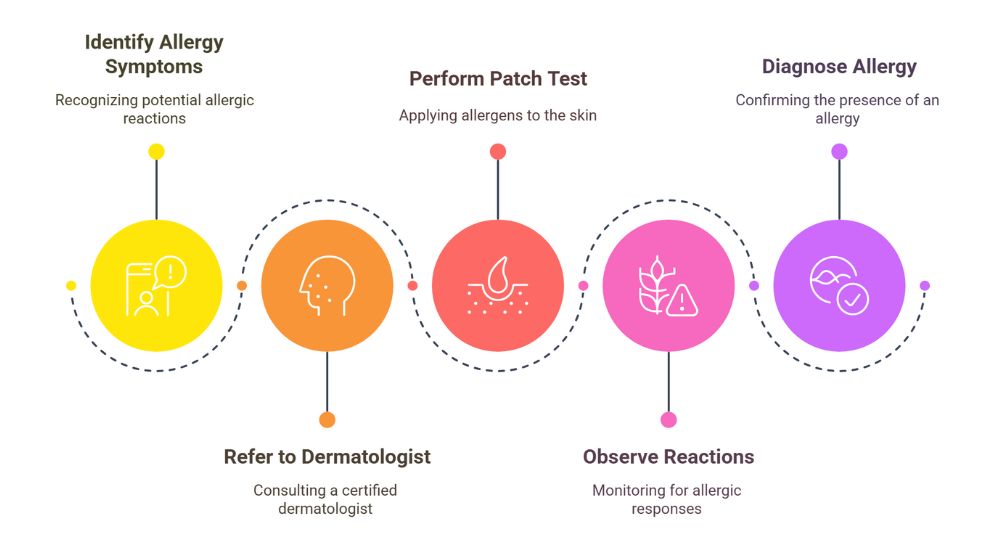
What’s the Best Treatment Options for Contact Dermatitis from Acrylic Nails?
Are There Long-Term Risks with Acrylic Nails?
Long-term use of acrylic nails carries some hazards, including the development of allergies and other skin disorders. Understanding these concerns is critical for anyone who frequently admires the beauty of artificial nails.
How Repeated Use Affects Your Skin and Nails
Regular use of artificial nails may gradually raise the chance of developing adverse reactions. This is especially true for persons who frequently work with acrylic nail products, such as nail professionals. The cumulative exposure to chemicals in these products might cause sensitization, in which the skin becomes more receptive to certain compounds over time.
Common allergens, such as acrylates, are found in liquid monomers used in acrylic nail treatment and can induce allergic contact dermatitis.
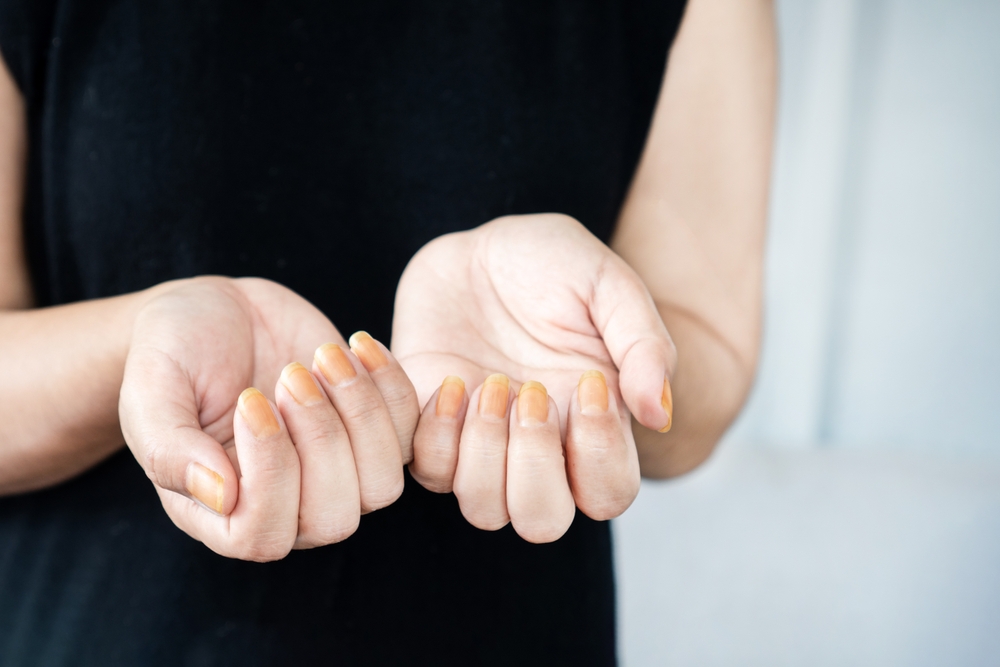
Potential Allergens in Acrylic Nail Products
Products containing acrylic nails include a variety of chemical components, each with a different risk profile. These include:
- Acrylate Compounds: Often the primary cause of allergic reactions in acrylic nail products.
- Formaldehyde Resin: Found in nail hardeners and can cause allergic reactions.
- Methacrylates: Used in gel nail polish and can cause allergies in sensitive individuals.
What Acrylics Can Do to Your Natural Nails
Applying acrylic nails for an extended period of time might potentially damage the natural nail. It has the potential to cause conditions like:
- Nail Thinning: The natural nail plate may become thinner and weaker.
- Nail Breakage: Increased fragility leading to breakage and splits.
- Nail Infections: The space between the acrylic and the natural nail can harbor bacteria and fungi.
Get Relief From Contact Dermatitis With Expert Care
Noticing redness, itching, or irritation around your nails? Our team can help you find answers and feel better.
What Are the Best Alternatives to Acrylic Nails for Sensitive Skin?
For those with a nail cosmetic allergy or sensitivity, there are safer alternatives:
- Gel Polish Nails: These are less likely to cause allergic reactions compared to traditional acrylics.
- Dip Powder Nails: An alternative that involves less chemical exposure.
- Natural Nail Treatments: Focusing on natural nail health can be a safer option for many.
Can You Have Acrylic Nails Without Irritating Your Skin?
Yes, you can have great-looking nails without hurting your skin—even if you’re allergic to acrylics.
If you’ve had a reaction to acrylic nails, it doesn’t mean you have to give up stylish nails for good. There are safer options and simple steps you can take to protect your skin while still enjoying the look you love.
Start by choosing nail products labeled as hypoallergenic or made for sensitive skin. These are less likely to cause irritation. Gel nails, dip powders, and press-ons with gentler adhesives can be good alternatives. Also, make sure your nail tech knows about your allergy—they can help avoid ingredients that might cause problems.
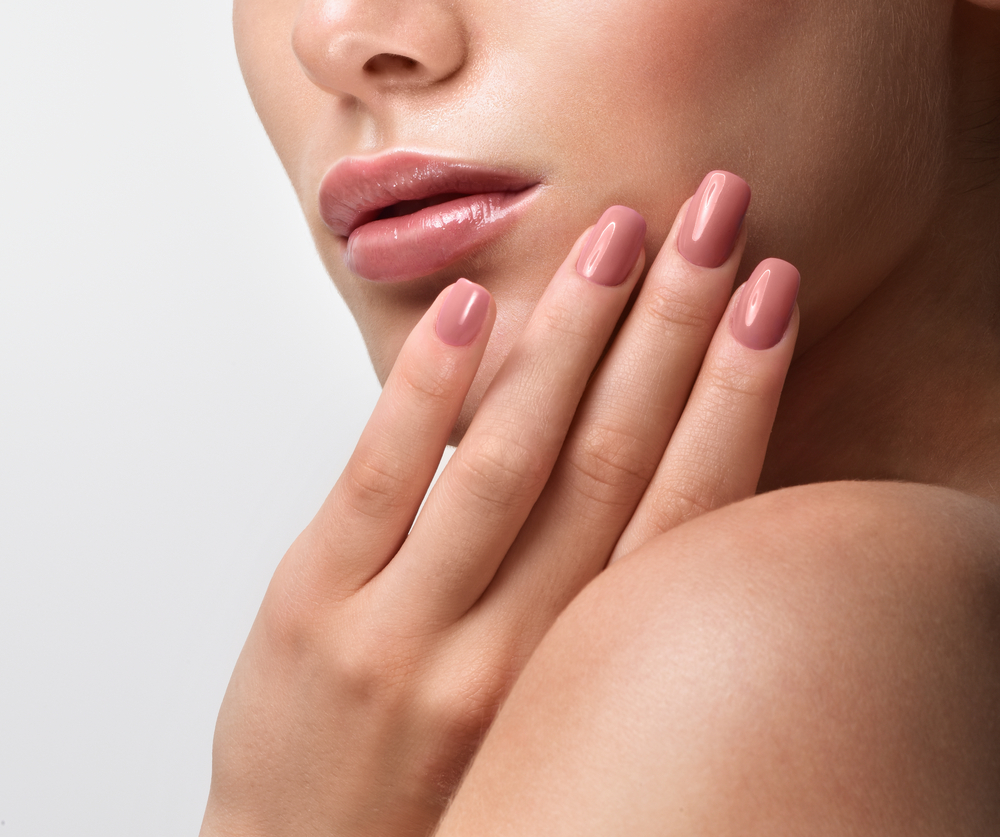
Keeping your nails and skin healthy just takes a little extra care. Moisturize your hands often, take breaks between nail applications, and watch for early signs of irritation like itching or redness. And if you’re unsure what’s causing your reaction, a dermatologist can help you figure it out with a patch test.
With the right choices and a little planning, you don’t have to choose between your skin and your style.
How to treat an allergic reaction to gel nail polish
Take the gel polish off right away and wash your hands with mild soap. Use a hydrocortisone cream to help with redness or itching. If the reaction is stronger, an allergy pill like Benadryl or Claritin can help. Don’t scratch the area — it can make things worse. If it doesn’t get better in a couple of days, or gets worse, see a doctor. If you have swelling in your face or trouble breathing, get medical help immediately.
If you suspect any allergic reactions or skin issues, consult with a specialist at Penn Medicine Becker ENT & Allergy for expert advice and treatment options. Your skin deserves the best care possible, so don’t hesitate to reach out for professional help.

